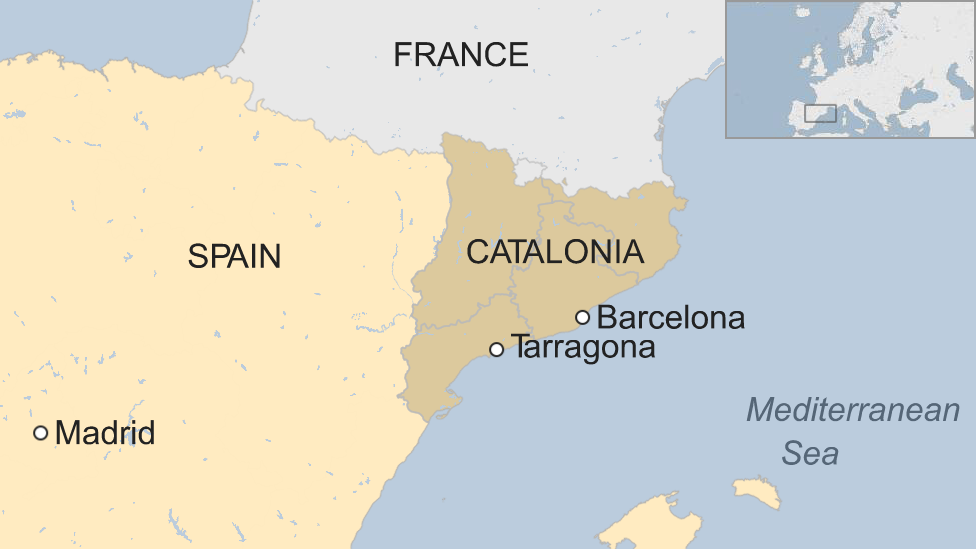Catalan protests: Region's president pushes for second vote
- Published
Catalan protests: Watch dramatic street battles in Barcelona on Wednesday
The president of Spain's Catalonia region has said he will push for a new independence referendum, as protests continued into a fourth day.
Quim Torra said another independence vote should go ahead within two years.
He has condemned violence which saw protesters clash with riot police after nine separatist leaders were jailed for their role in a failed push for independence.
At least ninety-six people have been hurt across the region.
Demonstrators were detained in Barcelona, Lleida, Tarragona and Girona on Wednesday night as the protests spread across Spain's north-east region.
Protesters have reportedly been using an app known as Tsunami Democràtic, which directs them to protest sites in Catalan cities.
The Spanish authorities say they are investigating who is co-ordinating the disruption. Mr Torra blamed "infiltrators" but government spokeswoman Isabel Celaá described those instigating the violence as "co-ordinated young Catalans" whose actions were not improvised.
Barricades were set alight and petrol bombs thrown as riots gripped the centre of Barcelona.
Allow X content?
This article contains content provided by X. We ask for your permission before anything is loaded, as they may be using cookies and other technologies. You may want to read X’s cookie policy, external and privacy policy, external before accepting. To view this content choose ‘accept and continue’.

Police released footage of a firework fired at one of their helicopters flying over demonstrators in Barcelona.

Thousands of people have joined a series of "marches for freedom", which are set to converge in the Catalan capital on Friday.
What did the Catalan president say?
Speaking in the Catalan parliament, Mr Torra said that the sentences handed down to Catalan leaders would not stop a second vote from going ahead.
"We'll return to the ballot box again on self-determination. If all parties and groups make it possible, we have to be able to finish this legislative term by validating independence," he said.
The Catalan parliament's term ends in December 2021.
Spain's Constitutional Court has warned Catalan officials of the legal consequences if they break the law by pursuing independence.
Mr Torra also called for an end to the violence. He said: "We will not permit incidents like those we are seeing in the streets.
"This has to stop right now. There is no reason nor justification for burning cars, nor any other vandalism."
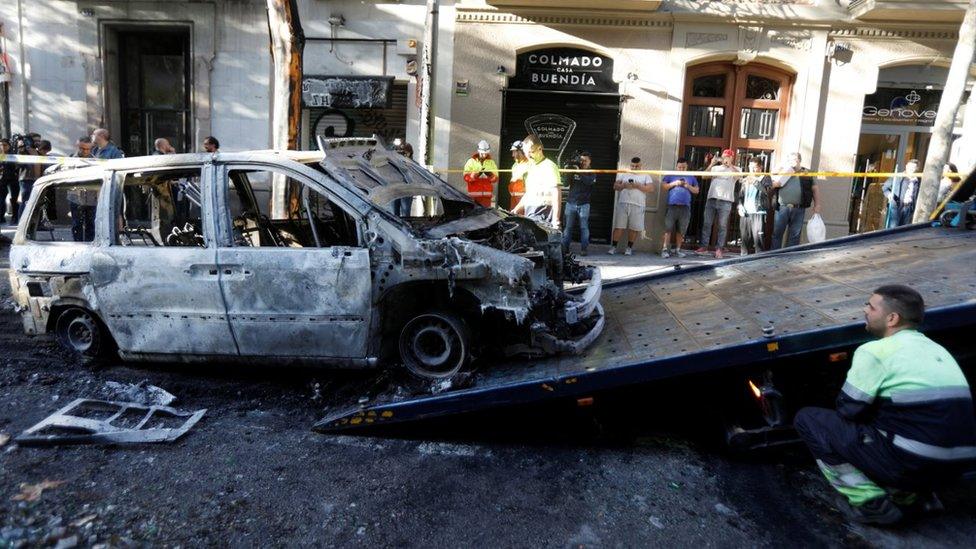
Evidence of the violence from the night before was clear in the centre of Barcelona on Thursday
Mr Torra, who advocates independence for Catalonia, was speaking after Spanish Prime Minister Pedro Sánchez had made a direct appeal to him to condemn the violence.
Mr Torra also condemned the long jail sentences handed down to leading separatist figures on Monday as a "direct attack on fundamental rights".
He appealed to the prime minister to "face up to the conflict as democracies do - by speaking to and giving voice to the citizens".
Why are people protesting?
The protests began after nine pro-independence leaders were jailed for between nine and 13 years by Spain's Supreme Court.
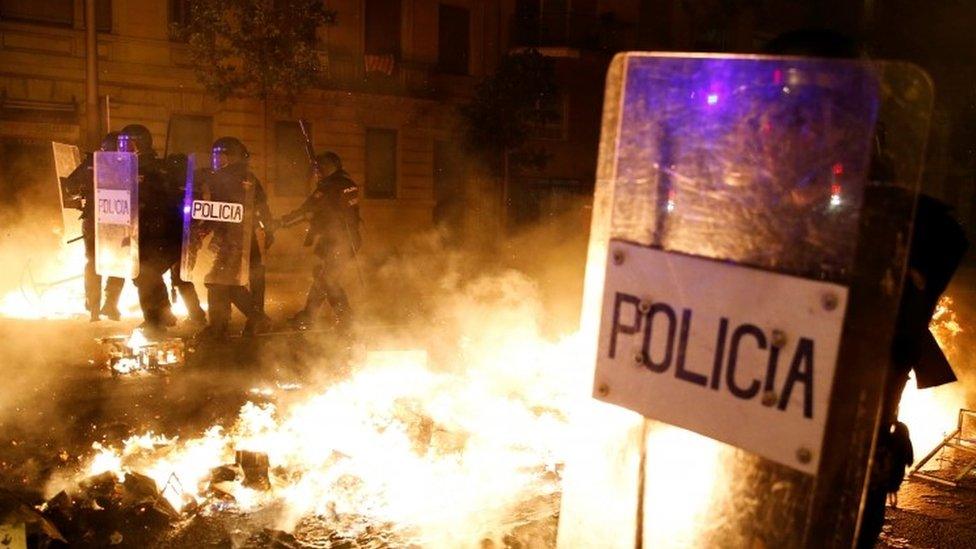
Riot police in Barcelona tried to disperse protesters who set up burning barricades
The separatists were convicted of sedition over their role in an independence referendum in 2017 which was declared illegal by the Spanish courts.
Another three were found guilty of disobedience and fined but not jailed. All 12 defendants denied the charges.
Former Catalan President Carles Puigdemont is still wanted by the Spanish authorities for his role in the referendum.
He currently resides in Belgium. If he returns to Spain, he will be arrested.
On Wednesday, it emerged that he is threatening to take legal action against Canada after his visa application was rejected days before he was set to address a group advocating Quebec independence.
Clashes broke out on Monday as protesters blocked road access to Barcelona's El Prat airport
On Monday, thousands of protesters blocked roads to Barcelona's El Prat airport - a major transport hub.
More than 100 flights were cancelled as demonstrators fought running battles with riot police at the terminal buildings.
What is behind the Catalonia unrest?
Catalan nationalists have long complained that their region, which has a distinct history dating back almost 1,000 years, sends too much money to poorer parts of Spain via taxes which are controlled by Madrid.
The wealthy region is home to about 7.5 million people, with their own language, parliament, flag and anthem.
In September, a march in Barcelona in support of Catalonia's independence from Spain drew crowds of about 600,000 people - one of the lowest turnouts in the eight-year history of the annual rally.

- Published15 October 2019
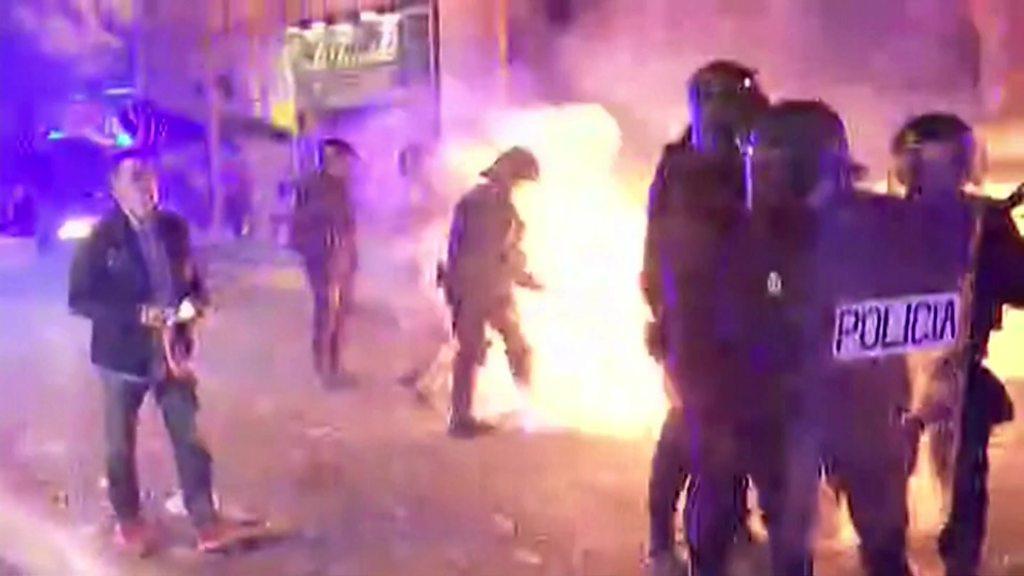
- Published14 October 2019
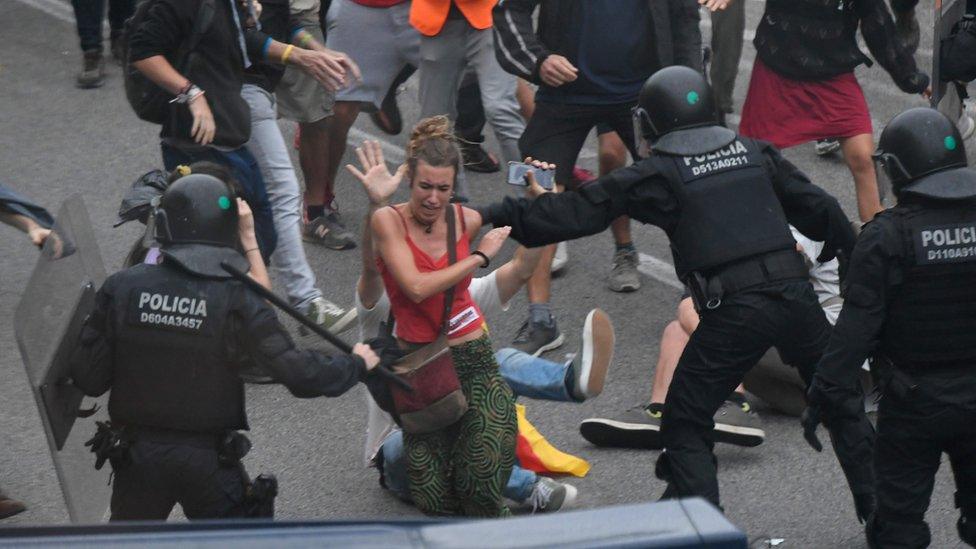
- Published14 October 2019
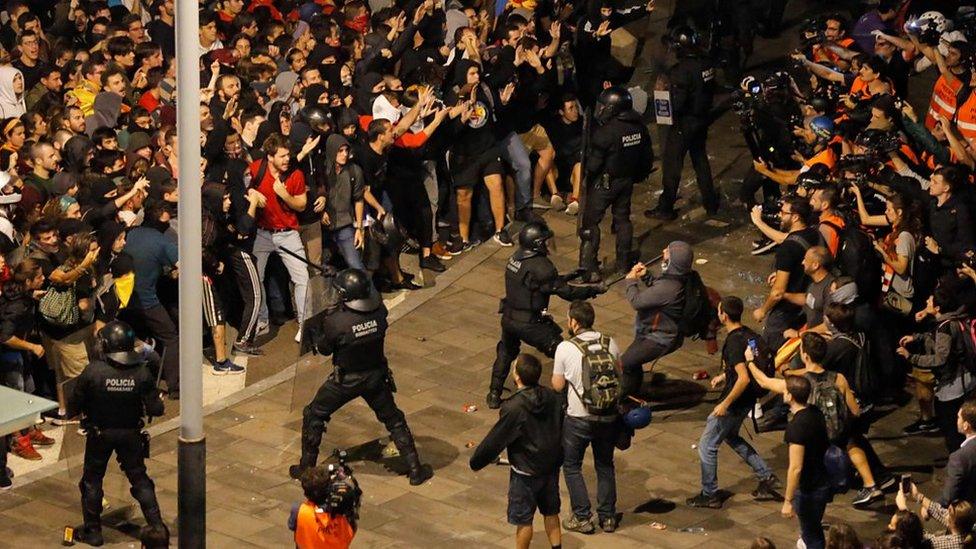
- Published26 March 2018
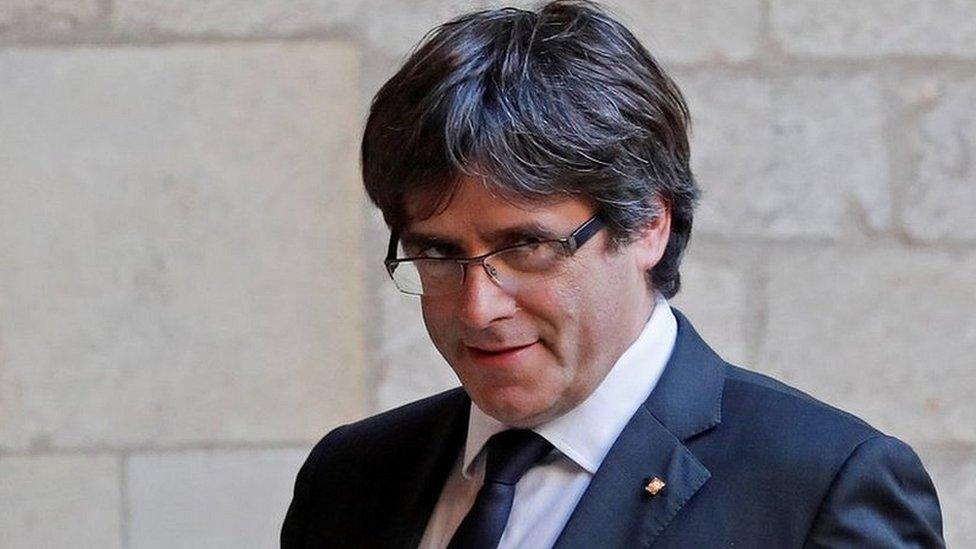
- Published21 August 2023
